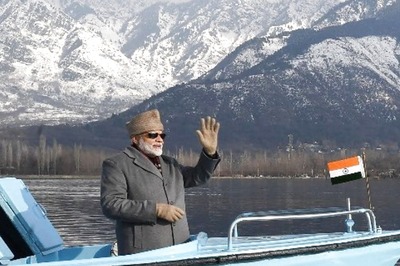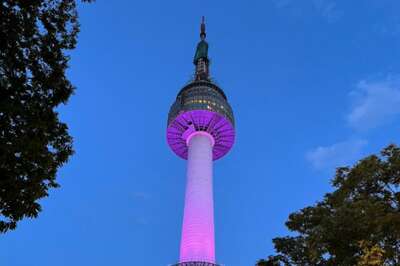
views
Tokyo: The head of the Japanese power company at the centre of one of the world's worst nuclear disasters has all but vanished from the public eye.
And many Japanese, on a knife edge waiting to see if the nuclear power plant and radiation leaks can be brought under control, are beginning to ask where he is and questioning how much he is in control of the crisis.
Masataka Shimizu, chief executive of Tokyo Electric Power Co (TEPCO), has not made a public appearance in a week.
And he has yet to visit the crippled nuclear power plant north of Tokyo that was badly damaged in the massive earthquake and tsunami that struck on March 11, and where 300 workers are desperately trying to find ways to cool down the reactors.
According to the Mainichi Shimbun newspaper, he did not even show up at company headquarters until a day after the disaster because he was stranded in the west of the country after trains stopped running.
At his last news conference, a week ago, the 66-year-old apologised for the situation. Since then, he has all but vanished from public view, issuing one statement on Saturday expressing regret for "causing such trouble."
Shimizu is a consummate company man, joining the company where his father worked, at the age of 23. Japanese media have quoted him as saying he wanted to work at a company "which serves public interests."
At the country's biggest power supplier, he made a name for himself as a cost-cutter in the procurement side of the business, becoming company president in June 2008.
Shimizu lives in a 43-story upscale apartment building in central Tokyo. Beyond its locked glass door, it resembles a hotel lobby, where a woman receptionist answers phone calls.
It was not clear if Shimizu is staying there these days.
Since the crisis, he has largely left it to TEPCO spokespeople in Tokyo to be the public face of the company and answer increasingly aggressive questions, and criticism, from reporters frustrated at the lack of information.
Mid-level executives often have no answers other than something along the line of "We are in the process of confirming".
"He's making the low-ranking people do all the hard work," said Satomi Aihara, a 46-year-old Tokyo resident. "I wonder where he's hiding -- it makes me mad."
Taro Kono, a prominent member of parliament with the Liberal Democratic Party and an opponent of nuclear power, was more blunt about TEPCO officials: "They don't tell the truth ... It's in their DNA."
Even Prime Minister Naoto Kan has been unable to hide his frustration. "What the hell is going on?" he was overheard telling TEPCO executives on Tuesday.
TEPCO officials say their boss is, understandably, busy.
"He's been leading the troops at headquarters," company spokesman Kaoru Yoshida said. As for another news conference, "We'll create an opportunity at an appropriate time," was all Yoshida would venture.
Japanese company chiefs may not be as closely associated with the successes of their companies as they are in the West, but they are to any failures.
They are expected to take responsibility for shortcomings, scandals or disasters that happen on their watch, apologising profusely and often resigning.
Indeed, a former president and chairman of the company both stepped down in 2002 after it was disclosed the company had deliberately falsified data and safety reports.
TEPCO's numerous brushes with scandal, including what the company acknowledged was "nonconformance" in repairs to a nuclear power plant following an earthquake in 2007, has made the press and the public suspicious of company statements during the current catastrophe.
The 2007 quake showed that another nuclear plant's infrastructure was insufficient to withstand quakes and, as Shimizu said last September, "left us with a mountain of challenges".
"We devoted our efforts to overcoming the crisis and creating a tougher business foundation by taking measures so that our nuclear power plants can withstand disasters," he said.
Whenever Shimizu does decide to reappear, he is likely to find he will need more convincing words.



















Comments
0 comment